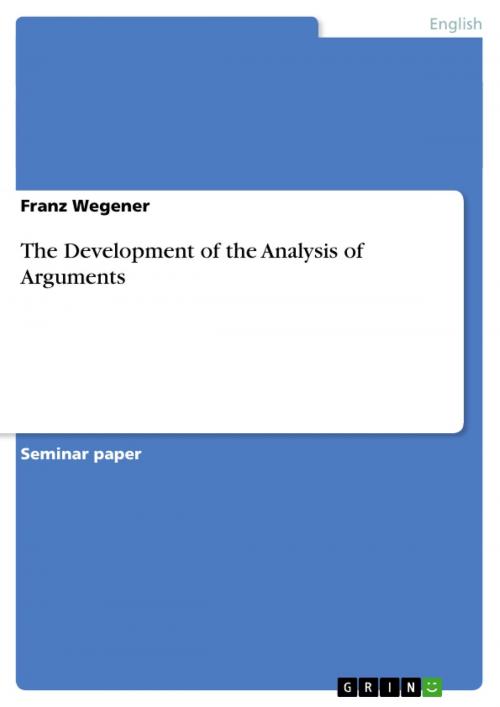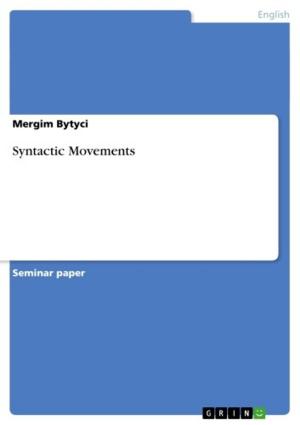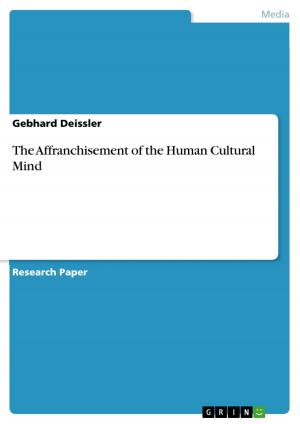| Author: | Franz Wegener | ISBN: | 9783638368643 |
| Publisher: | GRIN Publishing | Publication: | April 20, 2005 |
| Imprint: | GRIN Publishing | Language: | English |
| Author: | Franz Wegener |
| ISBN: | 9783638368643 |
| Publisher: | GRIN Publishing |
| Publication: | April 20, 2005 |
| Imprint: | GRIN Publishing |
| Language: | English |
Seminar paper from the year 2003 in the subject English Language and Literature Studies - Linguistics, grade: 1,7, Otto-von-Guericke-University Magdeburg (Institut für fremdsprachliche Philologien), course: Perspectives in Semantic Theory (WS 2002/2003), 9 entries in the bibliography, language: English, abstract: The following paper describes in detail the development of logic from syllogisms via propositional and quantified predicative logic to componential analysis. It gives an insight in how the systems of logic work and how they are applied to the analysis of arguments. It offers practical examples of how and when to use them and provides exercises for a deeper understanding. Furthermore, it discusses the advantages, disadvantages, and limitations of each system and finally combines componential analysis with the other systems to create a unified tool for the examination of arguments
Seminar paper from the year 2003 in the subject English Language and Literature Studies - Linguistics, grade: 1,7, Otto-von-Guericke-University Magdeburg (Institut für fremdsprachliche Philologien), course: Perspectives in Semantic Theory (WS 2002/2003), 9 entries in the bibliography, language: English, abstract: The following paper describes in detail the development of logic from syllogisms via propositional and quantified predicative logic to componential analysis. It gives an insight in how the systems of logic work and how they are applied to the analysis of arguments. It offers practical examples of how and when to use them and provides exercises for a deeper understanding. Furthermore, it discusses the advantages, disadvantages, and limitations of each system and finally combines componential analysis with the other systems to create a unified tool for the examination of arguments















